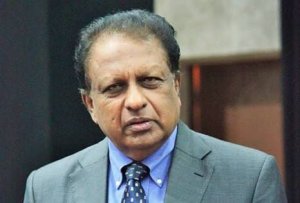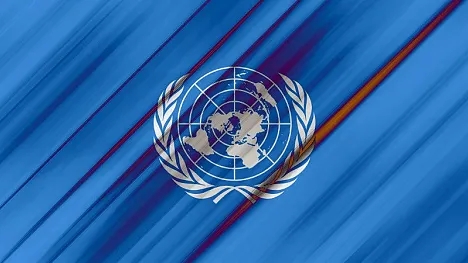
Dysfunctional Disunited Nations

The long delayed and long awaited virtual meeting of the UN Security Council ended in New York, the very city where thousands are felled by a devastating pandemic, even without a pious declaration that the situation is grave enough to threaten peace and international security. What the UN General Secretary characterized as “the fight of a generation and the raison d’etre of the United Nations” ended without firing a shot. The five permanent members, who call the shots at the United Nations did not agree even to discuss the “impact of COVID-19 on international peace and security,” as the non-permanent members unanimously demanded. At least two of the permanent members, Russia and China, even argued that the Security Council had no mandate even to discuss the issue.
As it happened, China became, by rotation, the President of the UN Security Council for the month of March 2020, the crucial month in which the true dimensions of the pandemic came into full view. The Security Council should have met in an emergency session by video conferencing and adopted a resolution to give a direction to the entire system to undertake action on a war footing. Instead, China began delaying tactics by raising issues like the Council’s mandate and the name of the pandemic. Having got the World Health Organisation (WHO) to name the pandemic without any reference to its place of origin, China resisted efforts by the US to insert China or Wuhan in its name. For a whole month, China blocked a meeting also because a draft resolution contained the word ‘transparency’ in it, which was anathema to China because they were far from transparent in their handling of the virus.
As for the mandate of the Security Council, China was on a weak wicket because there were clear precedents of the Security Council encompassing other pandemics within its mandate to deal with ‘International Peace and Security’. When Dominican Republic took over the Presidency of the Security Council for the month of April 2020, things began to move in the Security Council. But since a permanent member was determined to oppose everything, it was difficult to accomplish anything even if the other fourteen members acted in unison. In the present case, Russia sided with China.
In the meantime, the General Assembly adopted a resolution on the COVID-19 pandemic co-sponsored by 188 countries that emphasised the importance of global solidarity to fight the disease. The resolution expressed the General Assembly’s “strong support for the central role of the United Nations system in the global response to the coronavirus”, and it called for “intensified international cooperation to contain, mitigate and defeat the pandemic”. Among the forms of intensified international cooperation highlighted were, “Exchanging information, scientific knowledge and best practices and… applying the relevant guidelines recommended by the World Health Organization”. The Secretary-General launched on 25 March a $2 billion global humanitarian response plan to fund the fight against COVID-19 in the world’s poorest countries.
Aware that an exceptional situation demanded extraordinary initiatives, the Secretary General, in his capacity as the “Conscience of Mankind” proposed an immediate global ceasefire on 23 March, to “silence the guns” and “focus together on the true fight of our lives”. On 3 April, he delivered a detailed update, underlining that while parties had expressed their acceptance for his call for a global ceasefire, there were challenges to making ceasefires a reality and robust diplomacy was needed. He also proposed, rather half-heartedly, that economic sanctions, both multilateral and unilateral, should be lifted. The Secretary General received wide support from the civil society, but the countries concerned did not heed his advice, particularly on sanctions. Saudi Arabia halted its war in Yemen and Russia supported lifting of sanctions other than the ones imposed by the UN.
World Health Organisation (WHO) is the UN Specialised Agency for public health issues. It monitors epidemics and advises member states to take necessary action and also provides help wherever necessary. The undue influence that China wields in the Organisation has influenced WHO action in a negative manner because it underplayed the gravity of the situation and delayed declaring it a pandemic. Other Specialised Agencies, such as UNDP, WTO, UNESCO, UNICEF have to be involved in order to deal with the pandemic. The agencies are notoriously incapable of working together as many of them are competing with each other to secure funds from donors. There is a Committee on Programme and Coordination (CPC), which used to coordinate the work of the Agencies. But the heads of Agencies do not even attend the meetings of the CPC. Secretary General Boutros Ghali called them “Barons” as they never listened to him.
When the Security Council finally held a virtual meeting behind closed doors on April 9, 2020, the Council was clearly divided between the permanent members and non-permanent members. A draft resolution proposed by the non-permanent members was rejected because of the opposition of China and Russia. In the absence of the leadership of the United States, nothing came out of the Council meeting.
Instead of being paralyzed because of petty battles in the name of the pandemic, its origin and the need for transparency, It should have authorized the UN Secretary General to put together a force under Chapter VII of the UN Charter by establishing that this was the time to step in with all its might to save lives and human civilization itself. Apart from assisting requesting nations to launch a health and humanitarian offensive, it should also be prepared to deal with conflicts on account of the fragility of the international system. Member states should be requested to send not only troops, but also police, health workers and equipment. Only a UN force which could enforce social distancing and lockdowns could prevent a catastrophe.
The world has long written off the UN as a watchdog of the world. But there was hope that the great minds which created the structure of the UN might be vindicated by an occasion of the gravest crisis that would unite the world and save it by collective action. The scheme of collective action outlined in Chapter VI and Chapter VII were carefully created to enable the UN to rise to the challenges of the future, while protecting the sovereignty of nations. From preventive diplomacy to peace enforcement, there are a wide range of options. The UN has even gone to war on a couple of occasions when the permanent members so wished. But to fail to see the extreme gravity of the pandemic as a threat to peace is an unforgivable dereliction of duty. The UN has lost its raison d'être.
The Security Council meeting to consider COVID-19 went down in history as the saddest moment, a collective failure of humanity to save itself. The mounting number of deaths are mere figures of “body bags”, as the Director General of the WHO characterised them. We have forgotten that each of them had a throbbing life, full of dreams, thoughts, compassion and hard work. Instead of fighting over whatever will be left of the present world, the permanent members of the UN Security Council should have raised a little finger to arrest the death and devastation around us. By failing to do so, the United Nations has lost even the last modicum of faith the world had in it.
The future of the UN in the post-COVID-19 world remains uncertain. Most likely, the world would turn away from the UN to find an alternative. The failure to end the pandemic because of its inherent inadequacies and the dwindling of multilateralism has exposed the deep flaws in the UN system. ”At a time when the world is desperate for the international leadership that only an organisation like the UN can provide, the organisation itself has never seemed so dysfunctional and ineffective.” (Kurt von Hippel and Randolf Kent)
